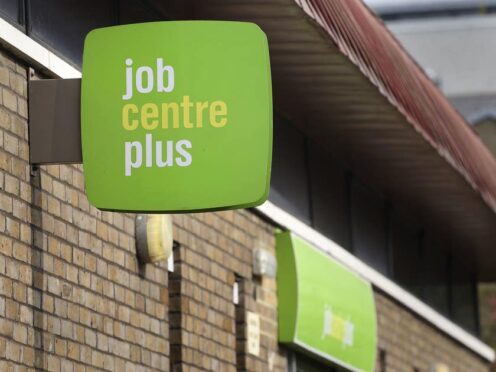Job vacancies in Scotland have reduced over the course of eight months, a report has found.
The latest Royal Bank of Scotland Report on Jobs survey, compiled by S&P Global, highlights “sustained deterioration” in permanent job adverts across Scotland during March, with recruiters noting an eighth consecutive monthly fall in the number of staff vacancies last month.
Demand for both permanent and temporary workers deteriorated sharply for the eighth successive month, the bank warned, describing pressures on salaries and hourly wages as “historically muted”, with pay recording the weakest increase in more than three years.
The rate of decline eased from February, but the number of people placed in permanent roles fell rapidly, the data shows.
A sixth successive monthly rise in temporary candidate availability was recorded across Scotland last month.
Across the UK, temporary placements were the lowest they have been since July 2020 – though temporary staff wages rose at the end of the first quarter of the year, RBS said.
Labour shortages and increased efforts to secure qualified candidates created “upward pressure on pay”, according to experts, who said new starters were recruited on better salaries last month.

Fewer vacancies, companies looking to cost-cut and increased market uncertainty meant Scottish recruiters recorded a fourth consecutive monthly fall in permanent staff appointments last month.
The fastest drop in demand for temporary staff in March was in the “executive and professional” sectors in Scotland, followed by hotel and catering, but March data revealed a fall in permanent candidate availability in Scotland, thereby extending the current run of decrease to 38 months, the bank said.
The supply of permanent staff expanded across the UK as a whole, but fell in Scotland in March.
Permanent placements also fell at the UK level, although at a “softer pace” than that seen in Scotland.
Sebastian Burnside, chief economist at Royal Bank of Scotland, said: “The Scottish labour market continued to exhibit weakness which has now existed for the most part of the last one-and-a-half years.
“Latest survey data highlighted that uncertainty regarding the outlook and firms looking to cut expenses impeded hiring activity.
“Additionally, demand for both permanent and short-term workers worsened for the eighth successive month, with recruiters recording fewer jobs available across Scotland.
“Meanwhile, though scarcity of suitably-skilled labour drove a further increase in permanent starting salaries during March, worsening hiring conditions meant pressures on pay eased.
“The rates of both starting salary and hourly wage inflation trended below their respective long-run averages.”
